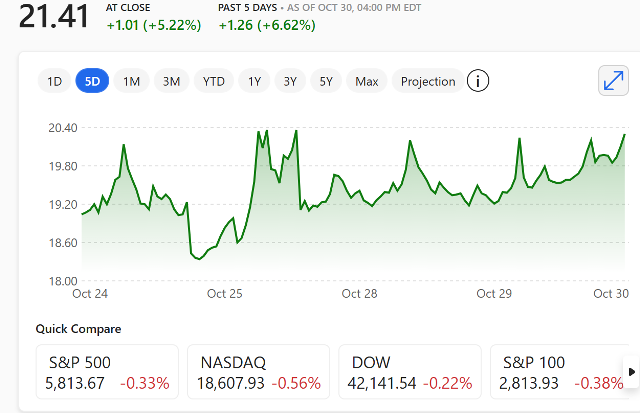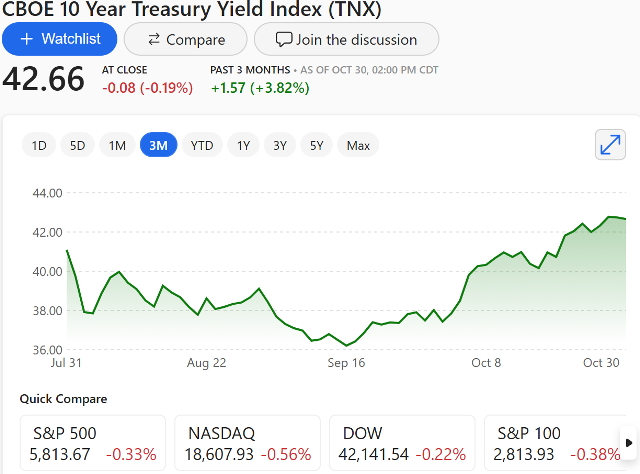Yesterday, all the markets took a hit as buyers disappeared into the close. The seasonal volatility I’ve mentioned over the past several weeks has now arrived. The current volatility is occurring for several reasons, the most notable being the upcoming election. Below is a 5-day chart of the VIX index, which measures trader bearishness. As you can see, the trend is up, indicating increased short-term bearishness.

Both Microsoft and Meta reported stellar earnings last night, yet in pre-market trading, they are being punished—likely due to concerns surrounding next week’s elections. Last quarter, Microsoft faced penalties as its Azure unit slightly missed revenue projections. This quarter, however, they exceeded estimates significantly.
Interest Rates and the Fed Meeting next week.
Most expect the Federal Reserve to lower interest rates by ¼ of a point next week. The current FedWatch tool shows a 96% likelihood of a ¼-point cut, although the December prediction of a similar cut has dropped to 69%, down considerably over the past three weeks. Markets have been reacting to recent economic data that has come in above expectations, mainly from job reports.
What isn’t being fully factored in is that rate cuts are typically made early since economic activity is a lagging indicator. If the Federal Reserve reverses its stance on lowering future rates in its statement after the meeting, this could essentially put a halt on the small-cap rally. If that occurs, it might be time to take profits.

Impact of Higher Long-Term Rates
The 10-year Treasury yield has skyrocketed over the past month, and this isn’t necessarily positive—except for yield buyers. Higher yields could reduce the funds available for risk assets like stocks (stocks are considered risk assets, whereas bonds are not). This trend may start impacting the stock market after the first quarter of 2025. As I mentioned before, funds currently in money market mutual funds may shift to bonds rather than stocks.
PCE Index
The markets do not want a stronger-than-expected number here, as it would likely trigger a sell-off. Such a sell-off could create a buying opportunity, but it would be wise to hold off on small caps until after the Fed meeting. A pause in rate cuts would not end the current short-term rally.
The markets DO NOT want a number stronger than expected. This would cause a sell-off. If that happens, it could create a buying opportunity. But I would not rush into small caps until after the Fed meeting. A pause would not end the current short-term rally.

